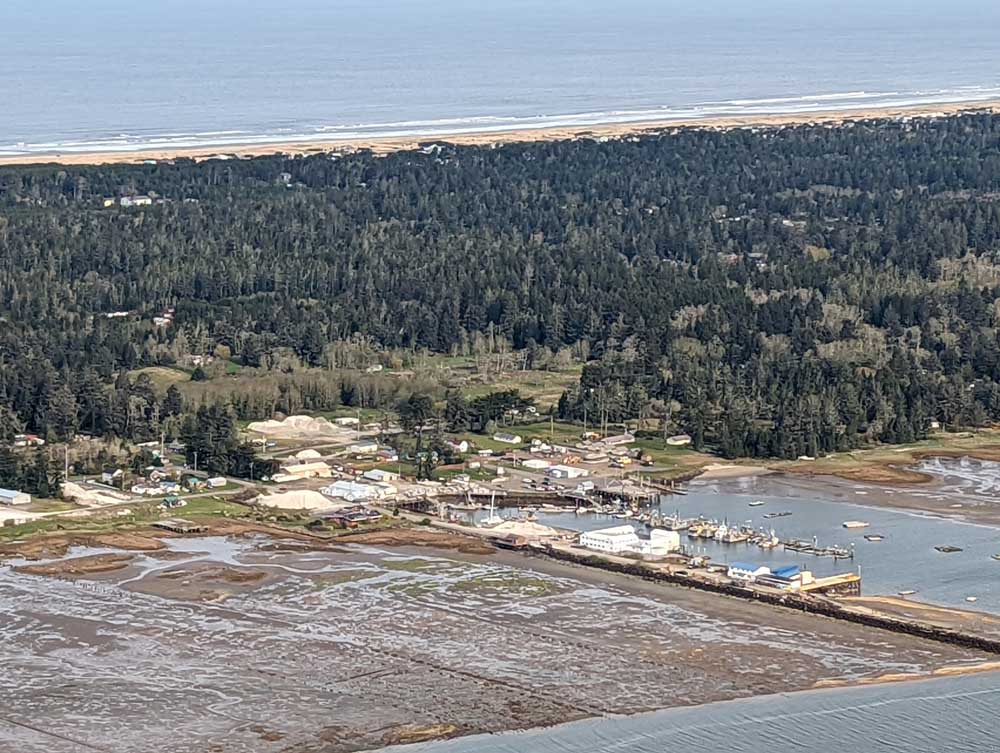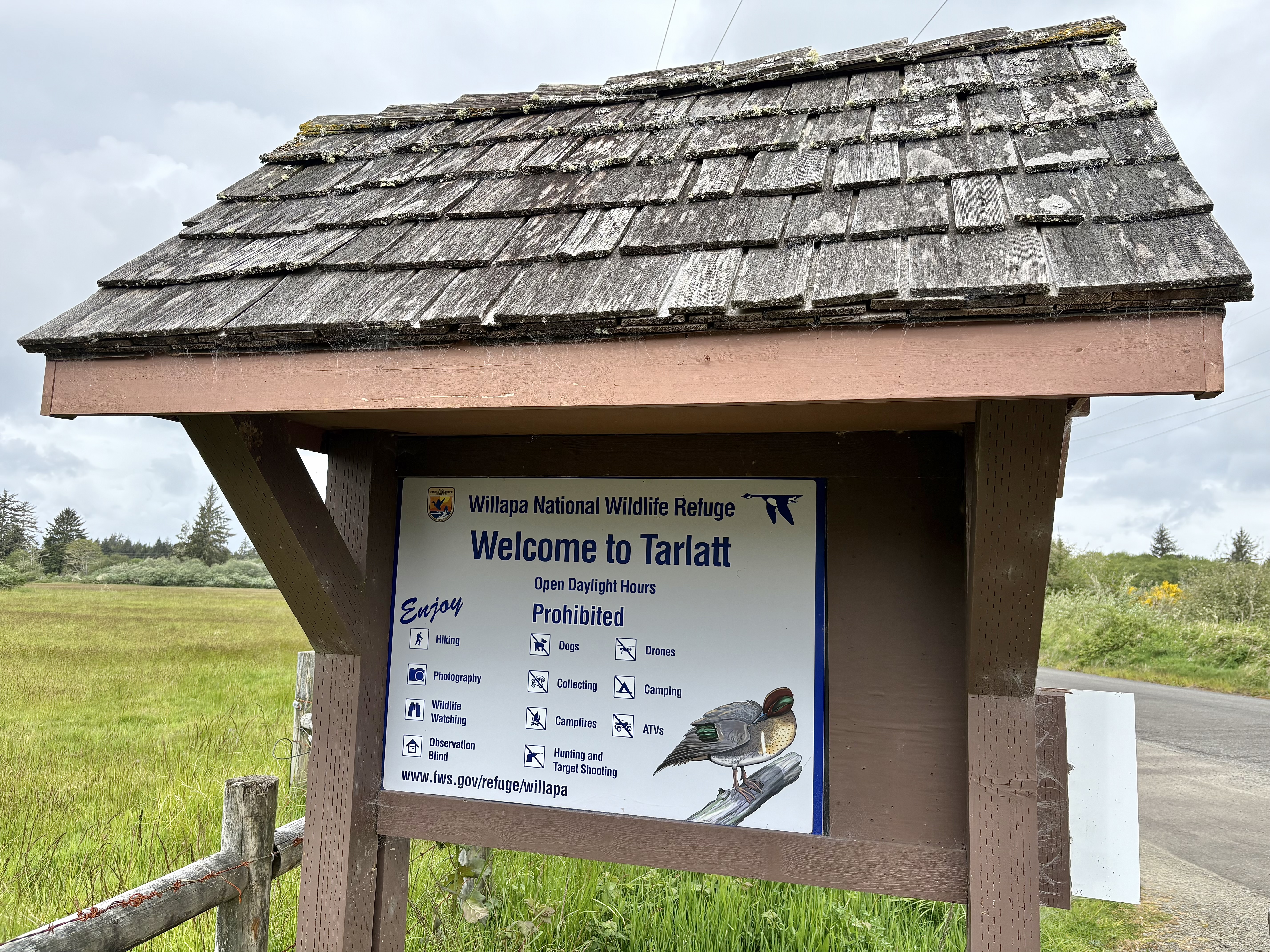Draft audit chides port’s top team
Published 2:00 pm Tuesday, August 27, 2024

- The Port of Peninsula in Nahcotta remains entangled in a state audit that has now been going on since late 2023.
NAHCOTTA — Previously undisclosed details from the Washington State Auditor’s Office’s (SAO) preliminary draft accountability report on the Port of Peninsula have been released as public records. The undated, 18-page report obtained by the Observer on Aug. 21 alleges financial mismanagement and lack of transparency.
Trending
Port management claimed on Aug. 27 that a forthcoming final report will be shorter as a result of auditors accepting explanations it provided.
The audit began in December 2023, when the port was selected for further review from Jan. 1, 2021, through Dec. 31, 2022. The process was initially expected to take only one month to complete, but it has so far turned into eight months of back–and–forth.
Uncooperative
For half a year, questions have remained about why the audit was seemingly taking an excessive amount of time. The answer outlined by the draft report was the port’s uncooperation, lack of urgency and disorganization.
‘Throughout the audit, auditors observed a general lack of organization at the port.’
Pat McCarthy, Washington State auditor
Oversight of day-to-day financials at the port during the period in question sat primarily with Jay Personius, its executive director. At the time, the port did not have a finance director and lacked substantial accounts receivable and payable records.
“Throughout the audit, auditors observed a general lack of organization at the port,” Washington State Auditor Pat McCarthy states in the report. “Port officials withheld requested documents from auditors. Basic financial records were disorganized and could not be tied to the annual reports, which resulted in auditors having a limited ability to rely on the documentation the port provided.”
The report primarily blames the port’s board of commissioners for allowing the situation to develop. The remaining commissioners from the period in question are Phil Martin, the chair, and Bill Derion, who have defended the port and Personius’ management.
Financial record mess
The audit alleges that at some point in 2022, the port stopped providing formal billing statements and used hand-written receipts at the time of purchases. In 2022, the port reportedly had $656,348 in goods and services transactions but only logged revenue of $312,364 — a discrepancy of $344,074.
No documents in the draft audit provided insight into the unaccounted funds.
The port was also found to not have timely provided 2021 and 2022 annual reports to state and federal agencies. The SAO received the 2021 report 318 days late and the 2022 report 344 days late — outside the mandated 150-day period at the end of the year.
The SAO discovered another discrepancy while combing through payroll and employee benefits records. The port was found to have collected $57,980 from employees between Jan. 1, 2021, and Dec. 31, 2022, for retirement, taxes and other withholdings. Auditors said those were not forwarded to state and federal agencies as required — and it is unclear what penalties and interest the agencies applied.
It was also discovered that two employees had payroll issues, with one employee underpaid $5,730 in 2021 and another overpaid $482 in 2022.
“We requested documentation on multiple occasions to determine whether the port subsequently paid these payments; however, support was not provided,” the report states.
‘This financial disarray resulted in the port being unable to maintain a positive general fund balance to ensure that its operations are sustainable.’
Additionally, the SAO found potentially invalid transactions, which included $3,316 for goods and services, $2,000 for a food trailer, $112 for meals, and $117 worth of late fees. The purchases had no accountability for legitimacy, including policies allowing the purchases.
“This financial disarray resulted in the port being unable to maintain a positive general fund balance to ensure that its operations are sustainable,” the report states. “The port had to borrow funds from its industrial development plan to cover expenditures for the general fund and has been unable to pay back the interfund loan timely.”
There is more
Lease agreements are another major point in the SAO report. Lease payments were allegedly not properly documented, including whether they were paid or billed. The reports for lease agreements were not readily available to auditors, and it took the port three months to provide relevant documents.
“Many of the port’s lease agreements were expired and past any applicable renewal periods,” the report states. “The port asserts that these lease agreements are now in ‘holdover’ or month-to-month status. However, the port was unable to provide formal unexpired agreements of holdover letters for selected leases and was unable to provide any documentation at all for two selected leases.”
Among this mess, the SAO found two lease agreements, one of which remains questionable and another that was not collected from September 2021 through March 2022 and was back-paid in April 2022 without any late fees.
Questions about the lease agreements continued after auditors discovered the port had not completed a lease-rate evaluation since 2000. Although documents are lacking, the lease rates are believed to be potentially “significantly less than fair market value, which could be considered a gifting of public funds.”
Under the Gifting of Public Funds Doctrine of Washington state, a governmental entity cannot give away public money. In the port’s situation, this might include ignoring or forgiving the relative balance rates based on fair market value.
It goes on
The lack of oversight by the governing body has handed Personius broad power. He has regularly alluded to a 2016 Delegation of Authority that he claims allows him to push through any individual payment below $10,000. According to the audit report, state law does not allow this.
One of the core duties of a public organization’s governing body is financial accountability to prevent misuse. Without oversight, the port was found to be unable to justify that “it is using public funds appropriately.”
“Port commissioners and management did not oversee payroll and accounts payable disbursements effectively to establish a control environment dedicated to complying with state law, safeguarding port resources, and ensuring transactions were for valid business purposes,” the draft report states. Additionally, the port has not dedicated adequate time and resources to establish effective policies over disbursement activity.”
Whistle blown
The port has been a top news story in Pacific County since early 2023. Then-commissioner Bonnie Lou Cozby blew the whistle about what she dubbed “a mess.” She uncovered one alleged problem after another and tried to elicit responsive answers from Martin, Derion and Personius.
The three aggressively criticized Cozby, calling her an “outright liar” and stating that “nothing she says is at all correct or factual.”
Based on the audit report, her allegations were accurate.
Of the issues raised by state auditors, violations of the Open Public Meetings Act are among the most contentious Cozby had with her then-colleagues. It has been fairly common for the port to abruptly cancel public meetings.
‘The port did not promptly prepare meeting minutes for meetings held in 2022 and did not prepare meeting minutes for any meetings held in 2023.’
The audit also addressed this issue in its report and scolded the port for failing to abide by the OPMA by canceling meetings at the last minute and failing to offer meeting minutes to the public in a timely manner, if at all.
“The port did not promptly prepare meeting minutes for meetings held in 2022 and did not prepare meeting minutes for any meetings held in 2023,” the report states. “The port canceled two consecutive open public meetings without public notice.”
“The port has not dedicated adequate time and resources to ensure that it followed all OPMA requirements. Further, the port did not educate itself on the required procedures for canceling meetings yet had a practice of canceling meetings on numerous occasions, which hinders public participation in their meetings,” the report added.
Delays go against transparency
The audit also included interviews with former employees and commissioners, who voiced concerns about the port’s functionality, including documentation and transparency by the board and Personius. The interviews were not included in the report document.
Pacific Seafood, which is locked in litigation with the port, has unfulfilled public records requests against the port that are over the one-year mark. Extensions on the records ran out late last year and others earlier this year.
It is unclear when the formal report will be released. The port acquired legal counsel in the audit, further delaying its completion. This is in addition to the port’s lack of cooperation and urgency in providing documents.
“Delays in the availability of complete financial reports prevent port officials, the public, and other interested parties from obtaining timely information,” the audit report states. “Such delays and inaccuracies also hinder public transparency and our office’s efforts to compile statistical and financial information that the legislature and others use.”
‘The port’s failure to respond impeded our officer’s ability to audit the government in a timely manner, as state law requires.’
“Further, the port’s failure to respond impeded our officer’s ability to audit the government in a timely manner, as state law requires,” the report added.
The overall mess of the audit has meant the SAO was unable to wholly and thoroughly audit the port’s accounts receivables and payable, payroll, leases, a land purchase, and its overall financial condition.
“Had the scope of our audit not been subject to these limitations, we may have identified other matters,” the report states.
The draft did not include responses from the port and responsive comments from the SAO.
Personius and the port assert that the draft obtained by the Observer last week is factually incorrect and “outdated.”
“That draft audit report is outdated and basically old news since it has been significantly reduced after port’s responses to it,” Personius said Aug. 27 in response to a request for comment. “The final report, much shorter and reflecting those changes, will be released soon, and we’re eager to share it with everybody immediately upon release at facebook.com/portofpeninsula.”
Personius has not provided the Observer with a single document requested via multiple public records requests dating back to May 2023.









